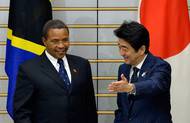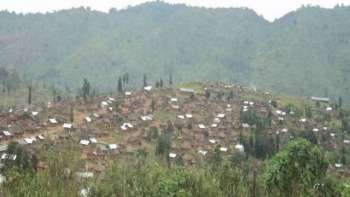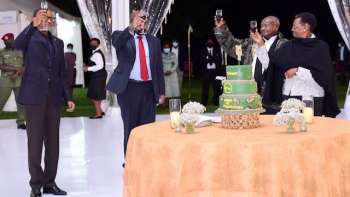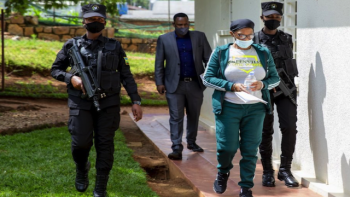"as a country[Tanzania] we won’t be ready to join any combined attack against the rebels because not all people in eastern DR Congo are FDLR rebels,” Bernard Membe, Tanzania’s Minister for Foreign Affairs told the media in Dar-es-Salaam Tanzania, hence rejecting, for some observers, the urgency of conducting military operations against Rwandan rebels and refugees based in Eastern Democratic Republic of the Congo (DRC) .
The declaration by the Tanzanian Foreign Affairs Minister comes after the Tanzanian President Jakaya Kikwete gave a cautious support on efforts to free Eastern DRC from armed groups influence. Talking to foreign diplomats during a state dinner in Dar-es-Salaam on January 9, 2015, Tanzanian President said:
"We have always been supportive and will continue to be supportive of these efforts to ensure the eastern DRC is free of armed groups that threaten the security of the people of Congo and Congo's neighbours...Any misrepresentation of Tanzania's position is done by people who pretend to read Tanzania's mind and make their thinking the truth. This is preposterous and contemptible. It is done by people who have ill intensions against our country." However, he left the door open on the conditions for the involvment of the Tanzanian troops.
These conditions may have been clarified by Bernard Membe when he said:
“If Congo will not use its security forces to identify the Rwandans and get them deported to their respective destinations, Tanzania will for the first time not comply with the UN directive to take immediate military action against the rebels. The M23 rebels were in uniforms, lived in camps and had troop vehicles as opposed to the FDLR rebels.”
Meanwhile, the Democratic Republic of the Congo government, supposed to give the go-ahead, has also expressed its reservations. Speaking to the media on Friday, January 9, 2015, Lambert Mende, DRC MInister of Communications said that "operations against FDLR will happen at the right moment, after weighting all the options and parameters and under the best possible scenario." Pushed for more clarity, Lambert Mende added that: "these famous FDLR are not a classic army. These are fighters without distinguishing marks that hide cowardly behind a human shield composed of our compatriots and other Rwandan civilian refugees. It is therefore the duty of the president and the military high command to adapt any strategy to this reality on the ground."
Lambert Mende and Bernard Mende appear to voice coordinated reservations against conducting operations.
South Africa has consistently held a similar view. For that purpose, South African President Zuma had pushed for an SADC/ICGLR summit in Luanda for January 15-16, 2015 to reevaluate the military and other options after the United Nations Security Council's January 2, 2015 deadline for the UN Peacekeeping mission (MONUSCO) and Democratic Republic of the Congo (DRC) troops (FARDC) to launch military operations against Rwandan refugees in Eastern DRC expired.
Angola's President Jose Eduardo Dos Santos, who recently has built closer ties with the Rwandan Gneral Paul Kagame, grudgingly agreed to the summit. However, under the pressure from the United Nations Security Council he abruptly cancelled the summit on Saturday January 10, 2015, without even a prior concertation with DRC, South Africa, and Tanzanian governments.
This has infuriated the Tanzanian government, and most importantly South African President Zuma, who is the current SADC leader. Both governments asking for explanation.
The next steps remain uncertain especially if DRC, Tanzania, and South Africa create a block and oppose the military operations, despite the go-ahead from the United Security Council. In fact, the operations hinge on the cooperation of Tanzania and South Africa, whose troops make most of the UN Intervention brigade, while the DRC troops form the foot soldiers.
Meanwhile, MONUSCO has started pyschological operations ahead of the anticipated military action, with a heightened presence on social medias, radio broadcasts, and blogs.
©2015 AfroAmerica Network. All Rights Reserved.
















